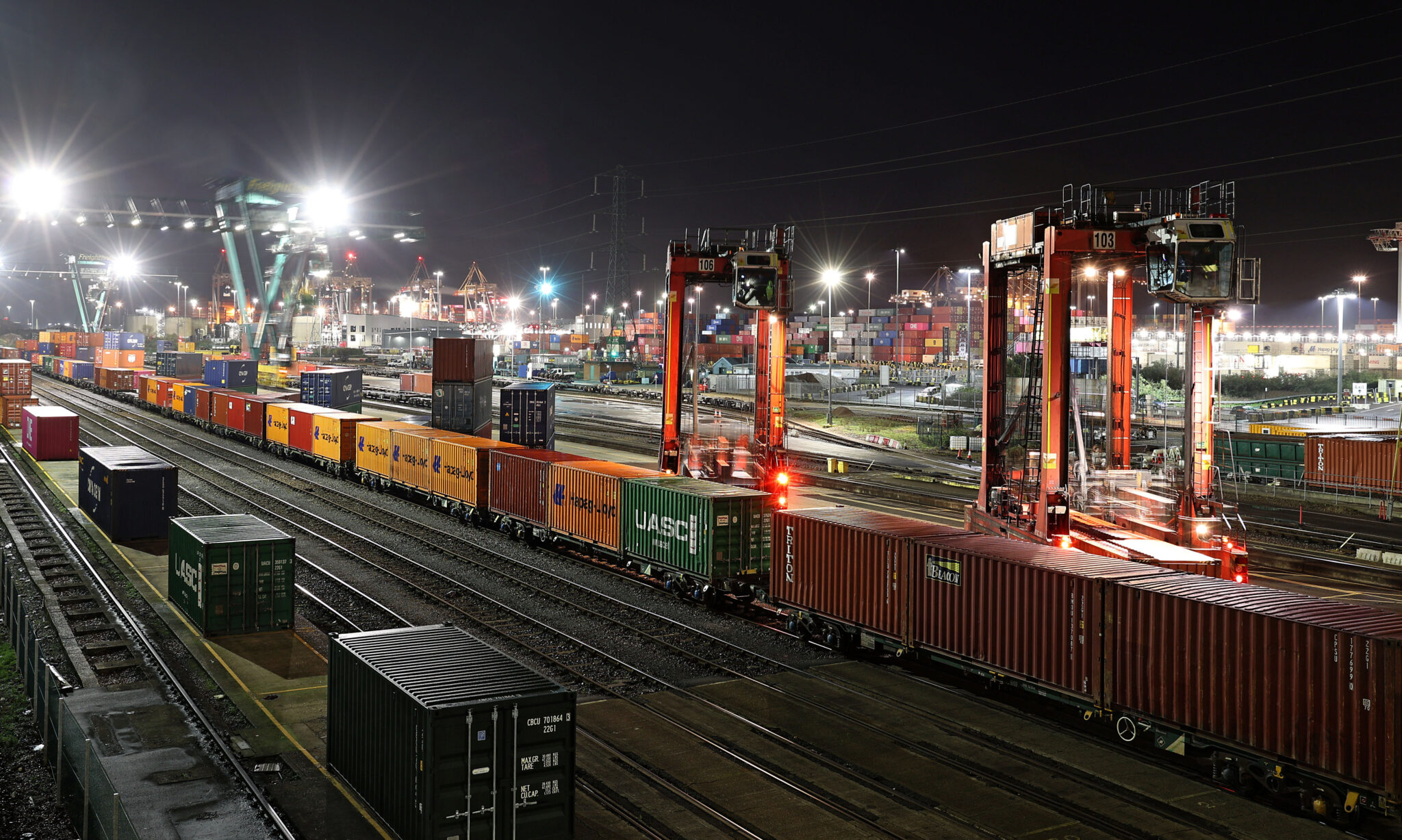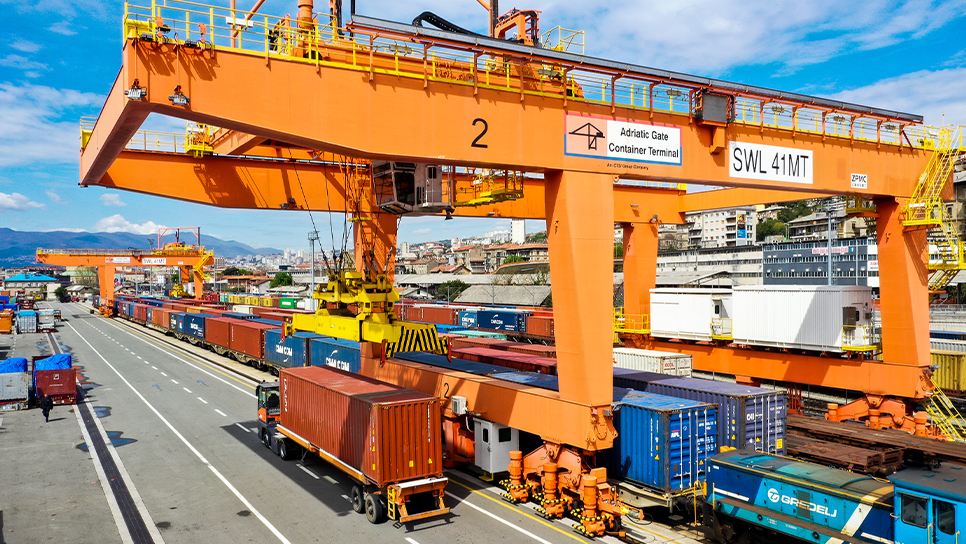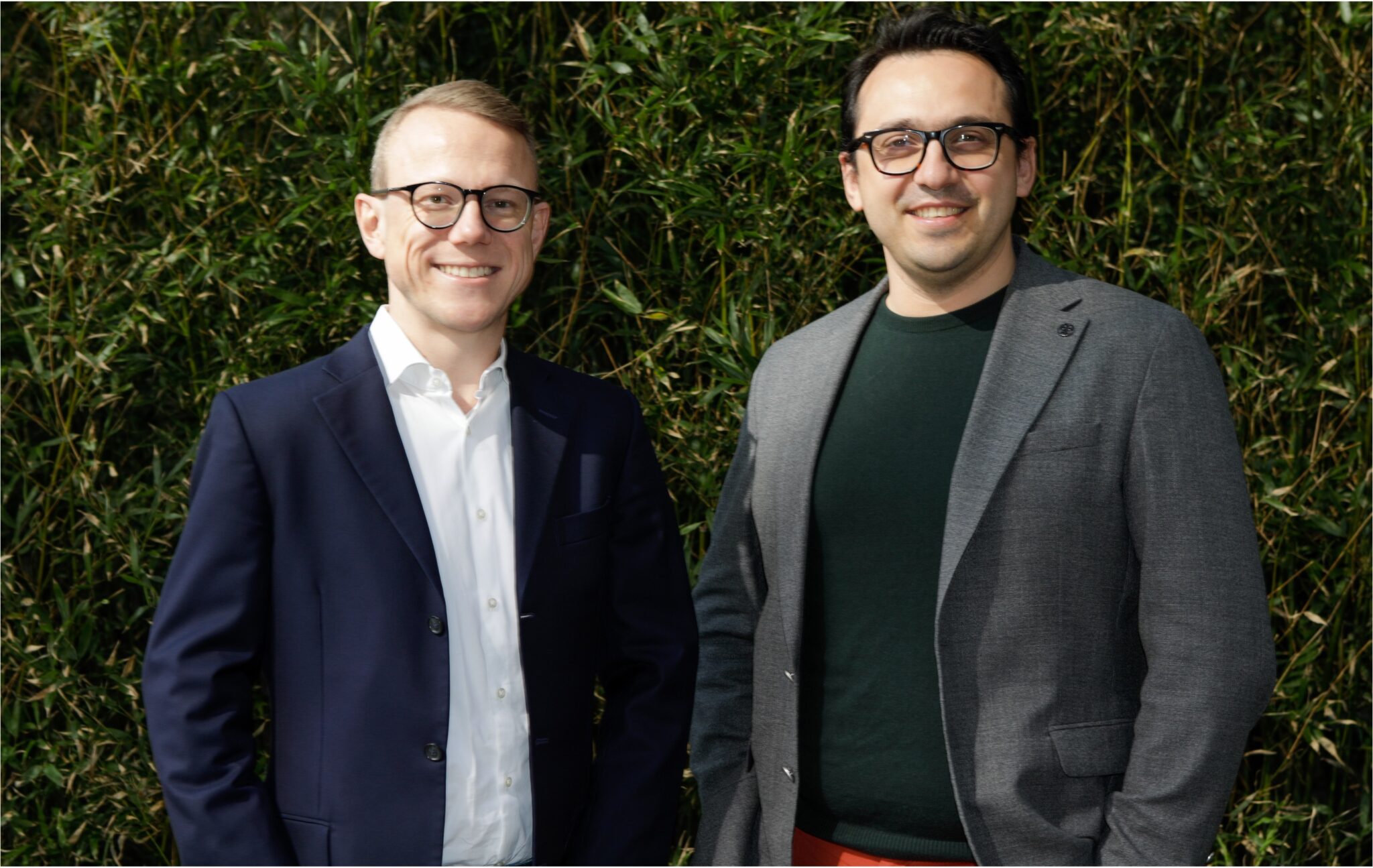Maritime Transport, one of the UK’s leading providers of integrated road and rail freight logistics, has launched a new rail freight service connecting DP World Southampton with its Strategic Rail Freight Interchange (SRFI) at SEGRO Logistics Park Northampton (SLPN).
Maritime Intermodal Six arrived in Northampton on 16th June – the first freight train to enter service at Maritime’s 35-acre SRFI, and the first to operate the full length of the newly reinstated section of East West Rail (EWR) between Oxford and Bletchley.
Part of a government-backed programme to re-establish a strategic rail corridor between Oxford and Cambridge, the reinstated Oxford-Bletchley route restores vital east-west connectivity across central England and offers a practical alternative to traditionally congested north-south routes. The introduction of Maritime’s latest service on the newly reopened stretch is a milestone for the UK rail freight sector, unlocking new cross-country options for domestic and containerised cargo, and bringing nationally significant infrastructure into operational use to support regional economic growth.
Operated by DB Cargo UK, the service runs five days a week, with a capacity of up to 68 TEU per train, and provides a new, direct inland link to one of the UK’s busiest deep-sea ports. The service has been supported by Network Rail’s Track Access Discount Scheme, an important initiative to promote modal shift and encourage new rail freight business, whereby relevant access charges are waived for six months whilst new traffic is being established.
The launch follows two additional paths introduced by Maritime in recent weeks, linking DP World London Gateway with its rail terminals at Hams Hall and Doncaster (iPort). Two further services are scheduled to follow, connecting London Gateway and the Port of Felixstowe with Northampton as part of a three-phase expansion programme to increase low-carbon rail capacity across the company’s national network.
Maritime’s SRFI at Northampton forms part of a wider £200 million infrastructure investment by SEGRO and connects directly to the West Coast Main Line via the Northampton Loop. Network Rail’s modern design of the railway junction allows trains to move between the main line and interchange at speeds of up to 40mph instead of a standard 5mph – getting freight trains on their way faster and reducing impact on other trains on the network. Formally integrated into the national rail network earlier this year, the SRFI sits at the heart of a major logistics hub adjacent to Junction 15 of the M1.
John Bailey, Managing Director – Intermodal, Maritime Transport, said: “The arrival of our first service via EWR is an important step in expanding UK rail freight capacity, providing businesses with a direct, low-carbon route from Southampton to the heart of the UK’s golden logistics triangle. This development demonstrates how infrastructure and private-sector investment can deliver a more efficient and sustainable supply chain, while easing pressure on a congested road network.”
Roger Neary, Chief Sales Officer, DB Cargo UK, added: “Having recently operated the first locomotive into SEGRO Northampton Gateway to ‘prove’ the infrastructure, DB Cargo UK is proud to once again be partnering with its long-standing and strategic customer on this significant inaugural flow into Northampton Gateway. Not only does this new flow facilitate additional capacity into this important region of the country, it will do so in a sustainable manner utilising new Network Rail infrastructure and – crucially – funding, delivering benefits to Maritime Transport and their own customers alike.”
Brian Paynter, Capital Delivery track director, Network Rail, said: “Seeing both this new rail connection to Maritime’s SRFI and the East West Rail route in commercial freight use for the first time are huge moments in both projects. Opening up this economically important rail route will give much more flexibility for our freight operators greatly improving connectivity across the country, while benefiting the environment through taking HGVs off roads – providing a lasting legacy for communities and business.”
Kate Bedson, Senior Director, National Markets, SEGRO, commented: “We’re excited to see real momentum building at SEGRO Logistics Park Northampton, marked by the completion of the rail freight terminal infrastructure, the arrival of the first train and the completion of Yusen Logistics’ new facility – the first warehouse to be constructed on the park. Each freight train can remove up to 76 HGVs from the road with a consequential reduction in carbon emissions, making this a crucial step towards more sustainable logistics. With rail freight contributing £1.7 billion to the economy, this milestone is not only a shot in the arm for growth, it also supports a greener, more efficient supply chain.”
similar news











